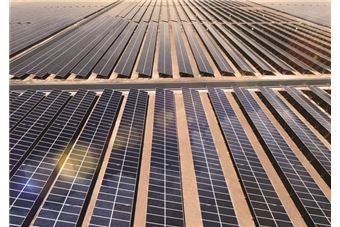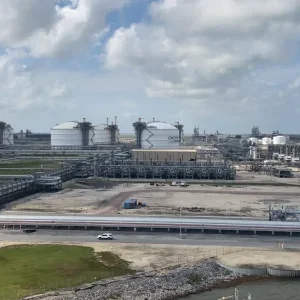
The Dubai Electricity and Water Authority (DEWA) has announced that the 800MW third phase of the Mohammed bin Rashid Al Maktoum Solar Park is set to be operational in April this year.
Upon completion, the solar project is expected to be the largest single-site solar park in the world based on the Independent Power Producer (IPP) model. The project is expected to have a capacity of 5GW in 2030 with investments of about AED50bn ($13,609.3m).
The solar facility is expected to offset more than 6.5 million tonnes of carbon dioxide emissions per year.
The third phase of the solar project was developed in three stages of which the 200MW first stage became operational in May 2018 while the 300MW second stage became operational in August the same year.
The third stage of the third phase with a capacity of 300MW will be operational in April this year.
The solar projects currently operational in Mohammed bin Rashid Al Maktoum solar park have a capacity of 713MW
At present, the work focuses on operational preparations to calculate the readiness of the substation. Following the primary tests, the substation will undergo pilot operational tests.
The third phase of the solar park is being developed in partnership with a consortium led by Abu Dhabi Future Energy Company, Masdar, and EDF Group, through its subsidiary EDF Energies Nouvelles.
Currently, the solar projects which are operational in the solar park have a capacity of 713MW and is planned to have a capacity of 1,013MW by April this year.
DEWA said that it is implementing four additional projects with a capacity of 2,150MW at the solar park, which will bring the total capacity of the current five phases to 2,863MW.
By 2030, DEWA aims to install 5GW to reach the objectives of the Dubai Clean Energy Strategy 2050 which is to produce 75% of the city’s total electricity output from clean energy.






